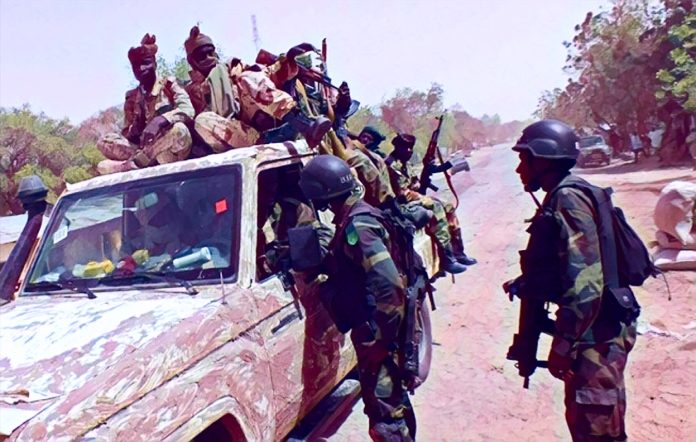Key Points
-
U.S. military outlines three possible intervention plans for Nigeria.
-
Nigeria and China reject Trump’s threat as interference.
-
Tensions rise as Washington debates overseas religious protection policy.
The United States military has developed preliminary plans for possible airstrikes in Nigeria after President Donald Trump directed the Pentagon to prepare for intervention to protect Christians from terrorist attacks, The New York Times reported Wednesday.
Military Options Presented to Pentagon
According to the report, the U.S. Africa Command submitted several operational options to the Department of War in response to an order from Secretary Pete Hegseth.
The instruction followed Trump’s directive for immediate readiness in case of escalation in northern Nigeria.
Officials familiar with the discussions said the military drafted three engagement models — heavy, medium, and light — each outlining a different level of involvement.
Under the heavy option, the U.S. would deploy an aircraft carrier strike group to the Gulf of Guinea. Fighter jets and long-range bombers would target insurgent bases deep in northern Nigeria.
The medium plan focuses on using MQ-9 Reaper and MQ-1 Predator drones for targeted strikes on militant convoys and camps, supported by U.S. intelligence and surveillance units.
The light version emphasizes intelligence sharing, logistics support, and joint counterterrorism operations with Nigerian forces against Boko Haram and other armed groups accused of mass killings and kidnappings.
Pentagon Voices Doubts on Impact
Pentagon officials reportedly acknowledged that limited airstrikes or drone missions alone would not end Nigeria’s prolonged insurgency.
They noted that only a large-scale campaign similar to those in Iraq or Afghanistan could deliver lasting results — an approach Washington is not considering.
Trump had earlier warned that the U.S. could use military force in Nigeria if the alleged persecution of Christians continued.
The Nigerian government dismissed the threat, describing it as “misleading and inaccurate.”
China and Nigeria Push Back
China on Tuesday voiced support for Nigeria and condemned what it called foreign interference based on religion or human rights.
“As Nigeria’s comprehensive strategic partner, China firmly opposes any country using religion or human rights as excuses to interfere in others’ internal affairs or threaten them with force,” Chinese Foreign Ministry spokesperson Mao Ning said in Beijing.
Nigeria also rejected its inclusion on the U.S. list of countries accused of religious persecution.
Information Minister Mohammed Idris said the classification relied on “inaccurate data and misrepresentation.”
“The government disputes claims of targeted religious persecution,” Idris said.
“Since 2023, the Tinubu administration has neutralised more than 13,500 militants and rescued over 11,000 hostages. Nigeria faces terrorism, not religious conflict.”
He added that Nigeria remains open to cooperation with the U.S. on counterterrorism while insisting on respect for national sovereignty.
Trump Reiterates Warning
In a statement Wednesday night, Trump doubled down on his position. “Christianity is facing an existential threat in Nigeria,” he said.
“The United States will not stand by while atrocities happen. We stand ready, willing, and able to save our great Christian population around the world.”
The developments have fueled diplomatic strain between Abuja and Washington. They’ve also renewed debate in U.S. policy circles over how far America should go in military interventions tied to religious or humanitarian crises abroad.



